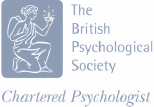Rational-Emotive Cognitive Behaviour Therapy (RECBT) is an action-oriented form of therapy that promotes change by teaching clients to identify, confront, and change their self-defeating thoughts and beliefs, to thoughts that promote goal achievement and emotional well-being. RECBT was developed by Dr Albert Ellis, who was inspired by Asian, Roman, Greek and modern philosophers, and RECBT can be considered to be both a psychotherapeutic system of theory and practice, and a school of thought. RECBT is widely recognised as an early form of CBT and is grounded in philosophical traditions such as Stoicism. This means that at the foundation of this form of therapy is a belief that people are less emotionally affected by outside factors, as they are by their own attitudes, perceptions and internalised views of outside events and situations. In RECBT, it is believed that humans construct their view of reality though their language, meanings, evaluative beliefs and philosophies of the world, themselves and others, and that these areas (and not unfortunate adversities) are the real cause of upset and difficult emotions. The RECBT framework suggests that people have both rational and irrational tendencies and that these tendencies are innate. Here rational tendencies can be understood as constructive, socially and self-helping tendencies, whilst irrational tendencies include unhelpful, socially defeating and self-defeating tendencies. In this form of therapy it is suggested that humans significantly contribute to the conscious and unconscious construction of emotional difficulties such as anxiety, depression, unhealthy anger, guilt, shame and unhealthy jealousy through their own self-defeating and irrational thinking, emotions and behaviour. RECBT proposes that mental health and mental well-being can to a large degree be achieved through developing appropriate amounts of flexibility, acceptance, self-helping and logical-empirical thinking, as well as supportive emoting and behaviour. Large quantities of scientific empirical studies into RECBT have suggested that this approach is an effective and efficient treatment approach for a host of problems and psychopathologies. This has been further supported by more recent randomised clinical trials that have suggested a positive view on the efficacy of RECBT.
So how does Rational-Emotive Cognitive Behaviour Therapy work?
In RECBT, the client learns to practice and follow the A-B-C Model and this allows for change away from psychological disruption. This model proposes that it is usually not necessarily the A (Adversity or Activating event) that contributes to the C (The Consequence – e.g. dysfunctional and disturbed emotions and behaviour), but what people B (Believe) about the A. Adversity (A) can be interpreted as either an external situation or an internal event (inferences we make), can be real or imagined, be past, present or future. RECBT primarily focuses on identifying beliefs (B’s) that hold implicit meanings and assumptions about our actions, personal preferences, and desires. The reason for this is that it is thought that if the belief (B) about the adverse event (A) is found to be absolutistic, rigid and dysfunctional, then the behavioural, emotional and physical consequence (C) is expected to be destructive, self-defeating and distressing. RECBT, however, proposes that if the person’s evaluative belief (B) can be changed to become flexible and accepting, then the emotional and behavioural consequence (C) is likely to become constructive and self-helping.










